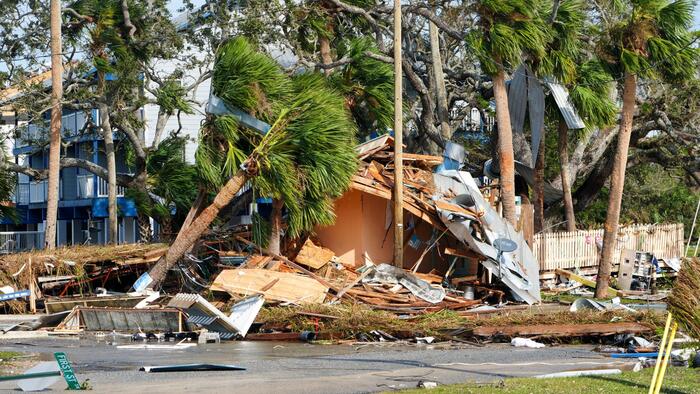In a disheartening assessment of the current state of American infrastructure, authors John and Nisha Whitehead highlight alarming statistics that showcase a nation in decay. Water main breaks occur every two minutes, exposing millions to contaminated water, while one-third of the country’s bridges require urgent repairs. The power grid is under such stress that projections indicate potential widespread outages affecting 300 million people by 2028. Such dire realities contribute to the U.S. receiving a C- grade on its Infrastructure Report Card, vividly underlining a systemic neglect of vital public services. The deterioration of bridges, roads, water systems, and energy grids exemplifies the serious shortcomings of government attention and investment in essential infrastructure that directly impacts citizens’ daily lives.
These infrastructure failures are painfully evident in times of crisis, such as during Hurricane Helene, which submerged entire towns and left millions without essential services, including access to potable water and power. The chaos that ensued illustrates not only the direct consequences of neglected infrastructure but also a broader governmental failure to prioritize the safety and well-being of the American populace. Current political practices are seen as prioritizing partisan issues and military expenditures over urgent domestic needs, revealing a concerning pattern of negligence when it comes to safeguarding the public’s basic rights and quality of life. Amidst grandstanding and distraction, essential infrastructure remains an afterthought in the political arena, with erosion in public trust following closely behind.
Addressing the myriad issues plaguing national infrastructure requires a significant realignment in political priorities. The authors argue that both major political parties have consistently demonstrated a lack of commitment to resolving these systematic problems due to their alignment with wealthy interests and a focus on short-term electoral gains. In supporting endless wars and ignoring the foundational needs of citizens, politicians contribute to a growing sentiment that American citizens are being sidelined and neglected. Statistics revealing severe poverty, unemployment, and homelessness starkly contrast with soaring military budgets and the extravagance of election spending, further emphasizing that current governance is misaligned with the needs of the average American.
The call for an infrastructure overhaul is echoed as a critical necessity for restoring both the physical and civil foundations of the United States. This is complicated by a powerful military-industrial complex that consumes vast financial resources, stymieing investments in essential public goods. The authors cite James Madison’s concerns about the dangers of perpetual war, asserting that such priorities undermine national liberty and enable a trajectory toward an oligarchical governance structure. The intertwining of wealth, power, and military interests exacerbates existing socioeconomic divides, leaving many American communities vulnerable and underprivileged.
President Dwight D. Eisenhower’s forewarnings about the dangers of a profit-driven war machine resonate throughout this discussion. Eisenhower’s insights into how military expenditures detract from social welfare and infrastructure were prescient. His cautionary stance against allowing the militarization of policy-making rings painfully true in today’s landscape, where defense budgets overshadow critical investments in areas that benefit citizens directly. The cost of military operations is vividly contrasted with the immeasurable benefits of social welfare programs and public infrastructure—reinforcing that every dollar spent on war represents a missed opportunity for community development and support for those in need.
Ultimately, the Whiteheads argue that recovering a sense of financial and social responsibility requires a significant reevaluation of national priorities. To break free from the grip of military entanglements and systemic neglect, the U.S. must invest in its own people and infrastructure, ensuring that civil liberties are protected and that citizens have access to basic needs. Promoting the common good, investing in public services, and restoring faith in democratic institutions are essential for reversing the troubling trend of governmental neglect. Only through sustained commitment to civic welfare and infrastructure investments can the foundations of freedom and prosperity be rebuilt, paving the way for a more equitable and resilient nation.

